What is the price of freedom?
Would you give it up if it meant more wealth?
Would you give it up if it meant more safety?
These are thorny questions. Complex questions. And I was thinking deeply about them over Easter.
That’s when my uncle from Singapore came to Auckland for a visit. My family hadn’t seen him in years — so we were delighted to play host.
Talking to him was a valuable opportunity. It was a chance to gain insights into our geopolitical history. To understand how the biggest events in the 20th century unfolded.
My uncle was born in 1939. And he can remember what it was like to live through the Second World War and its immediate aftermath.
This wasn’t the happiest time.
The British colonialists knew that they were no longer credible as a hegemony. The sun was setting on their global empire. So they made the decision depart Southeast Asia. And in doing so, they left a power vacuum behind.
In this restless landscape, ultranationalists and communists fought for supremacy. Racial riots were common. Genocide was a very real threat.
In this post-colonial era, Singapore didn’t appear to stand much of a chance. It was an impoverished island state. It had no natural resources. It was surrounded by hostile neighbours.
Yet, despite it all, Singapore defied the odds. Instead of being squeezed and strangled to death, it managed to achieve the opposite: a complete transformation.
From a backwater swamp to a modern metropolis.
From Third World to First World.
From poverty to wealth.
What is astonishing is that all this happened in the space of just one generation.
The Singapore story
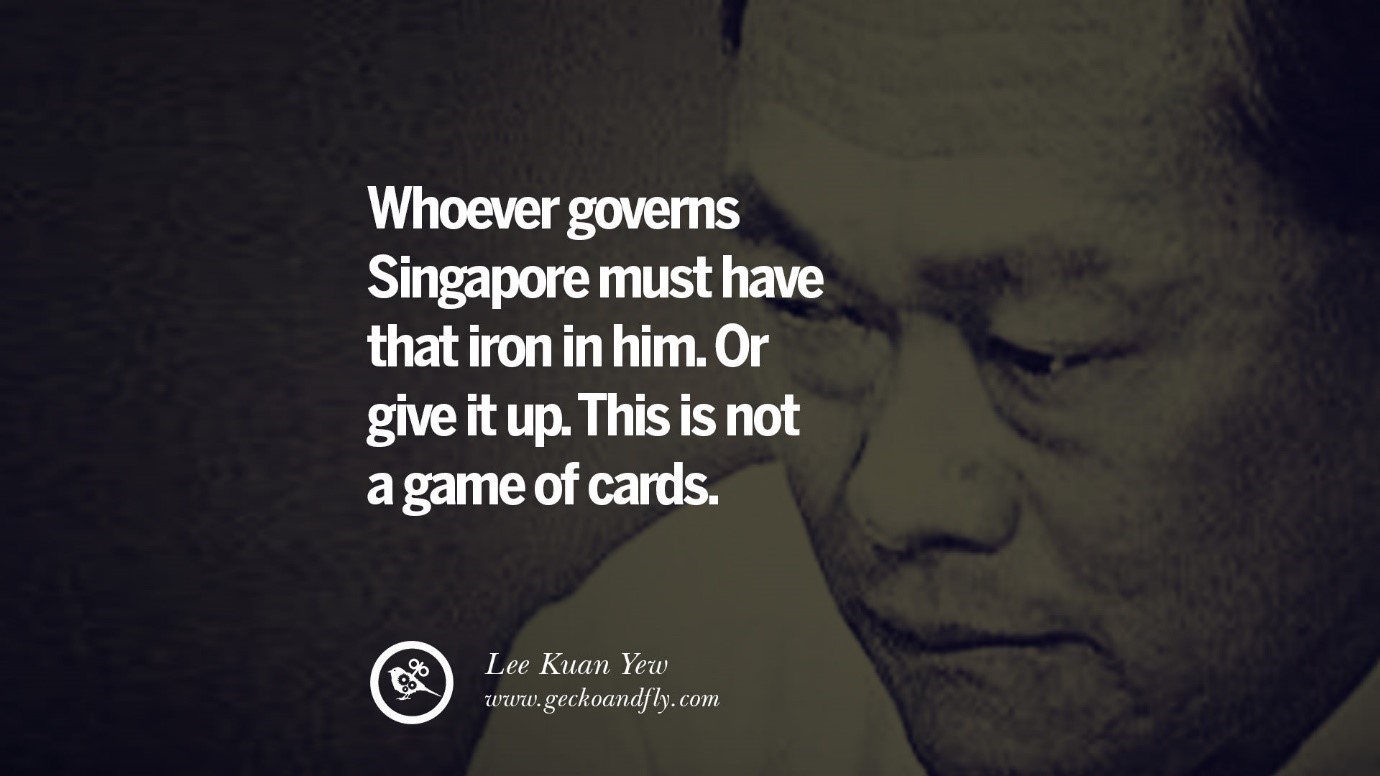
Source: Gecko & Fly
Today, Singapore is one of the most developed societies in the world. It has a population of over 5.4 million — and the city-state is only slightly larger than our very own Lake Taupo.
In terms of GDP per capita, the International Monetary Fund estimates that Singapore is the fifth-richest nation — right behind Norway and Switzerland.
But therein lies the contradiction. Singapore is not a democracy. Singapore is a dictatorship — but perhaps it’s a benevolent one. The vast majority of Singaporeans accept this. Many even praise it.
For people of my uncle’s generation, Lee Kuan Yew remains a towering figure, looming large in their imagination. And why not? Lee was their first prime minister. A philosopher-king. A mythic saviour.
In 1965, when Singapore separated from Malaysia over racial grievances, this tiny country was in a deeply vulnerable state. But through sheer force of will, Lee led his young nation through that traumatic period. And in doing so, he transformed Singapore into a global icon of wealth and prosperity.
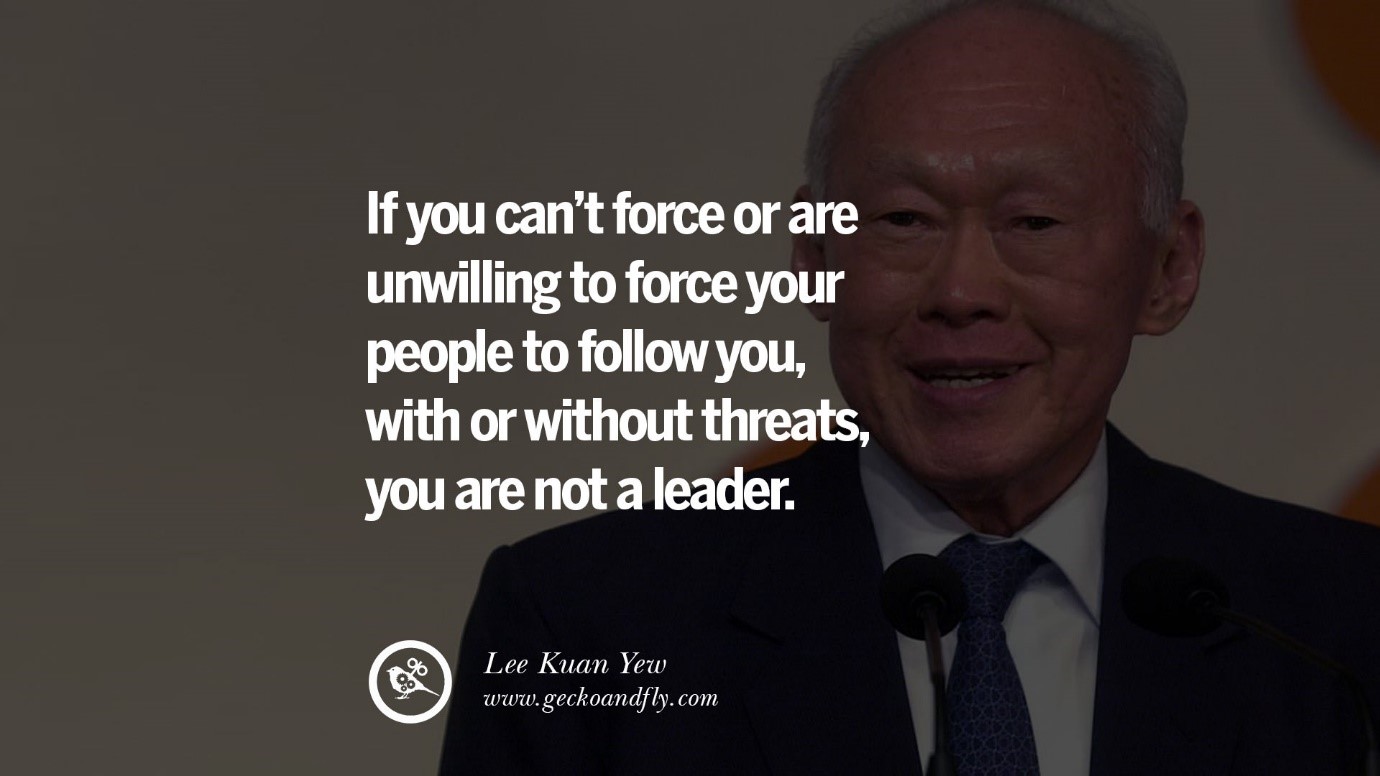
Source: Gecko and Fly
Make no mistake about it: Lee didn’t achieve all this by being kind. In fact, he was absolutely ruthless. He used internal security laws to detain and imprison his political opponents. He used sedition laws to muzzle the press into submission.
Lee had very little tolerance for protest. He would lock up a Christian pacifist just as easily as he would lock up a communist insurgent. He did not hesitate to crack down on both the Left and the Right.
In Lee’s vision for Singapore, there could no dissent. No argument. Only obedience.
These days, Lee Kuan Yew may be gone, but his spirit lingers on. It has been 60 years since the country gained independence — and in that time, Singaporeans have known no other government except for the People’s Action Party (PAP).
Is Singapore a nanny state? Big Brother personified? A kind of tyranny?
Well, yes, it does feel that way.
The government controls and monitors its population to an invasive degree.
Now, here’s a taste of some of the laws being enforced in Singapore:
- If you play a musical instrument in public, this is considered a nuisance. You can be prosecuted.
- If you feed the pigeons in public, this is considered a nuisance. You can be prosecuted.
- If you drink liquor after 10.30pm, this is considered a nuisance. You can be prosecuted.
- If you encourage someone to commit suicide, this is considered a nuisance. You can be prosecuted.
- If you connect to a Wi-Fi connection without the owner’s permission, this is considered a nuisance. You can be prosecuted.
- If you don’t flush a public toilet after using it, this is considered a nuisance. You can be prosecuted.
Well, you get the idea, don’t you?
The state has a very big hammer — and if you know what’s good for you, you don’t want to stick out as a nail.
This is social engineering on a scale unimaginable by most Westerners.
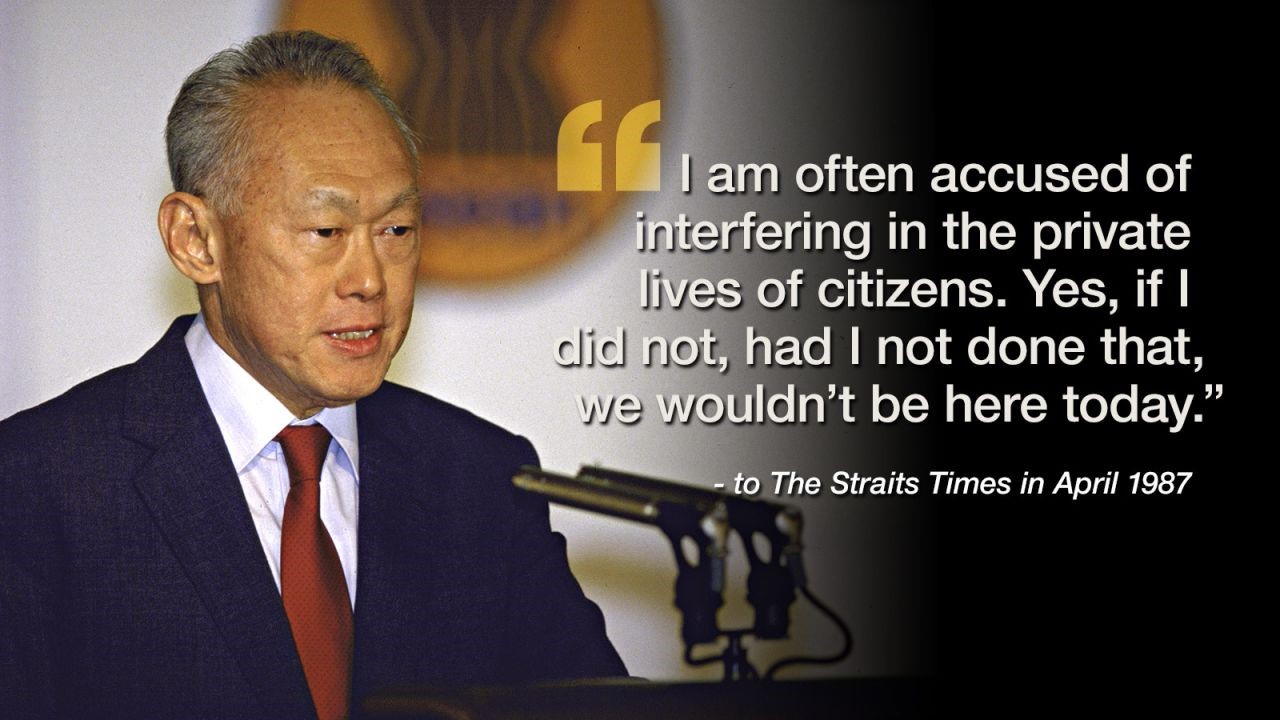
Source: CNN
In New Zealand, many of us are sceptical about government power. We often complain about how an elite ruling class is running our nation. Contrary to our interests and beliefs.
But spare a thought for Singaporeans. They have no say in the matter. An elite ruling class have been running their affairs for three generations now — and it may very well continue for another three.
Singapore is clean. Singapore is orderly. Singapore is rich.
This is a well-oiled enterprise. Smooth and friction-less.
But you should forget about individual liberty. It’s the one commodity that’s rarer than litter on Singaporean streets.
There’s no freedom to defy. No freedom to challenge. No freedom to protest.
Is this a good thing?
Well, my uncle believes it is. He reckons that the average Singaporean can’t be trusted with freedom. Because freedom is so fickle. So volatile. So chaotic.
In the end, ordinary people don’t really know what’s good for themselves. They often make the wrong choices. So they have to be micromanaged. They have to be told what to do.
This is why an elite ruling class running Singapore sounds so appealing.
When you have highly skilled bureaucrats exercising total control, they can just get things done — without asking for anyone’s permission.
My uncle believes this is the secret of Singapore’s success.
Predictability. Consistency. Reliability.
Every citizen is a cog in this machine.
Everyone must obey.
No ifs. Not buts.
The argument in favour of democracy
This brings me to our current situation in New Zealand.
Of course, there’s no hiding it: we have our fair share of problems.
We have issues with inflation. With infrastructure. With education. With productivity. With crime.
Indeed, there are a million things that could be done better in our country. But we are so slow in addressing them. We must govern by consent. We must ask for permission. As a result, our solutions are often compromised and half-baked.
We seem to be forever stuck in second gear, aren’t we?
This can feel frustrating. Maddening.
But hold on. Wait a minute. You shouldn’t forget: this is the very nature of freedom.
We have the freedom to haggle. We have the freedom to be messy. We have the freedom to make mistakes.
Indeed, this is a game of chance. It’s a coin toss. We can elect a bad government just as easily as we can elect a good one.
At first glance, this might seem like a bad idea. But what if it’s actually a good idea? What if it’s actually our greatest strength?
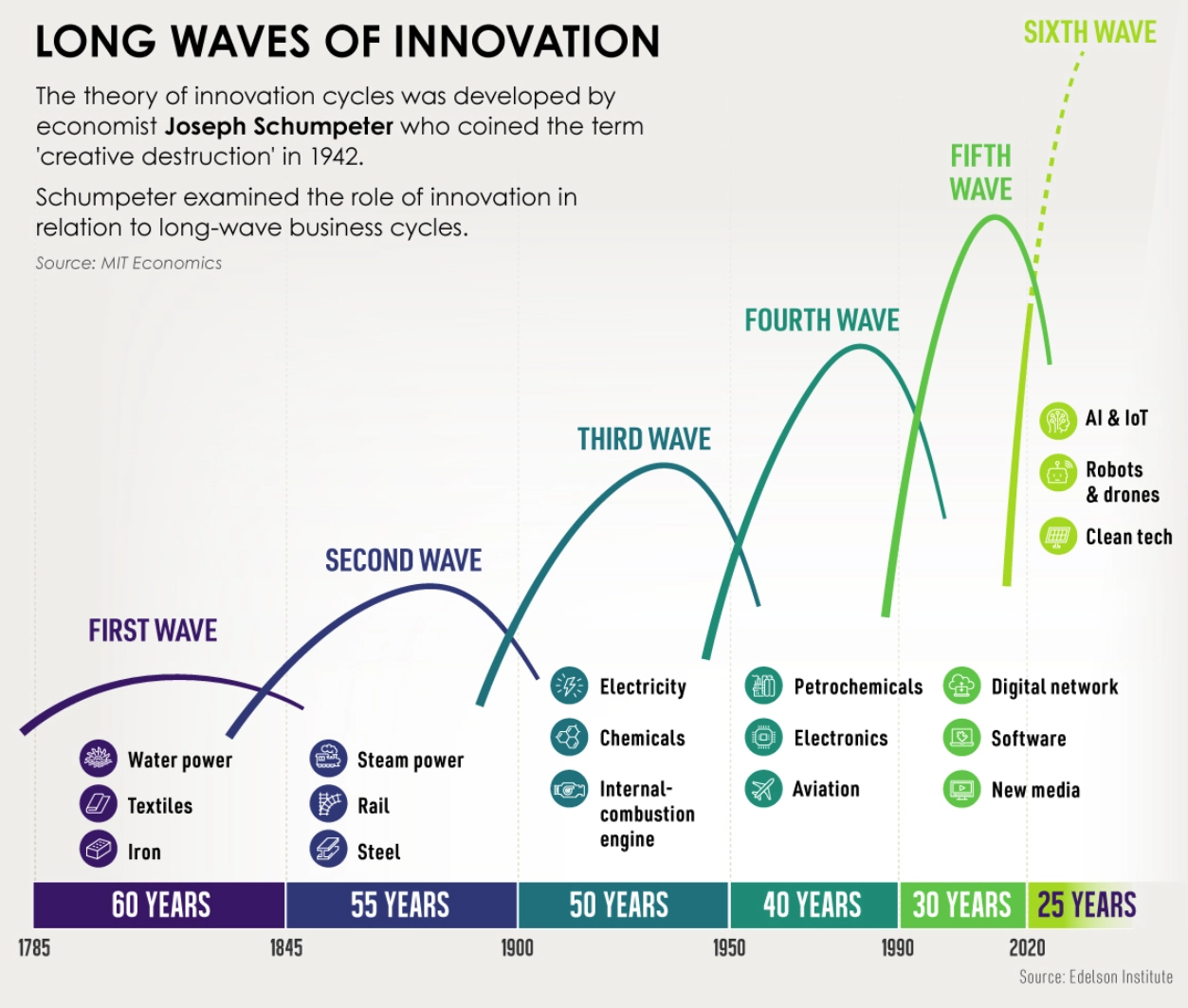
Source: Visual Capitalist
It was the great Austrian economist Joseph Schumpeter who first popularised the idea of creative destruction. He described creative destruction as the ‘process of industrial mutation that continuously revolutionises the economic structure from within, incessantly destroying the old one, incessantly creating a new one.’
This is such a bold idea, isn’t it? Ultimately, creative destruction may offer us a chance at renewal and rejuvenation. This leads to innovation and growth — especially when we least expect it.
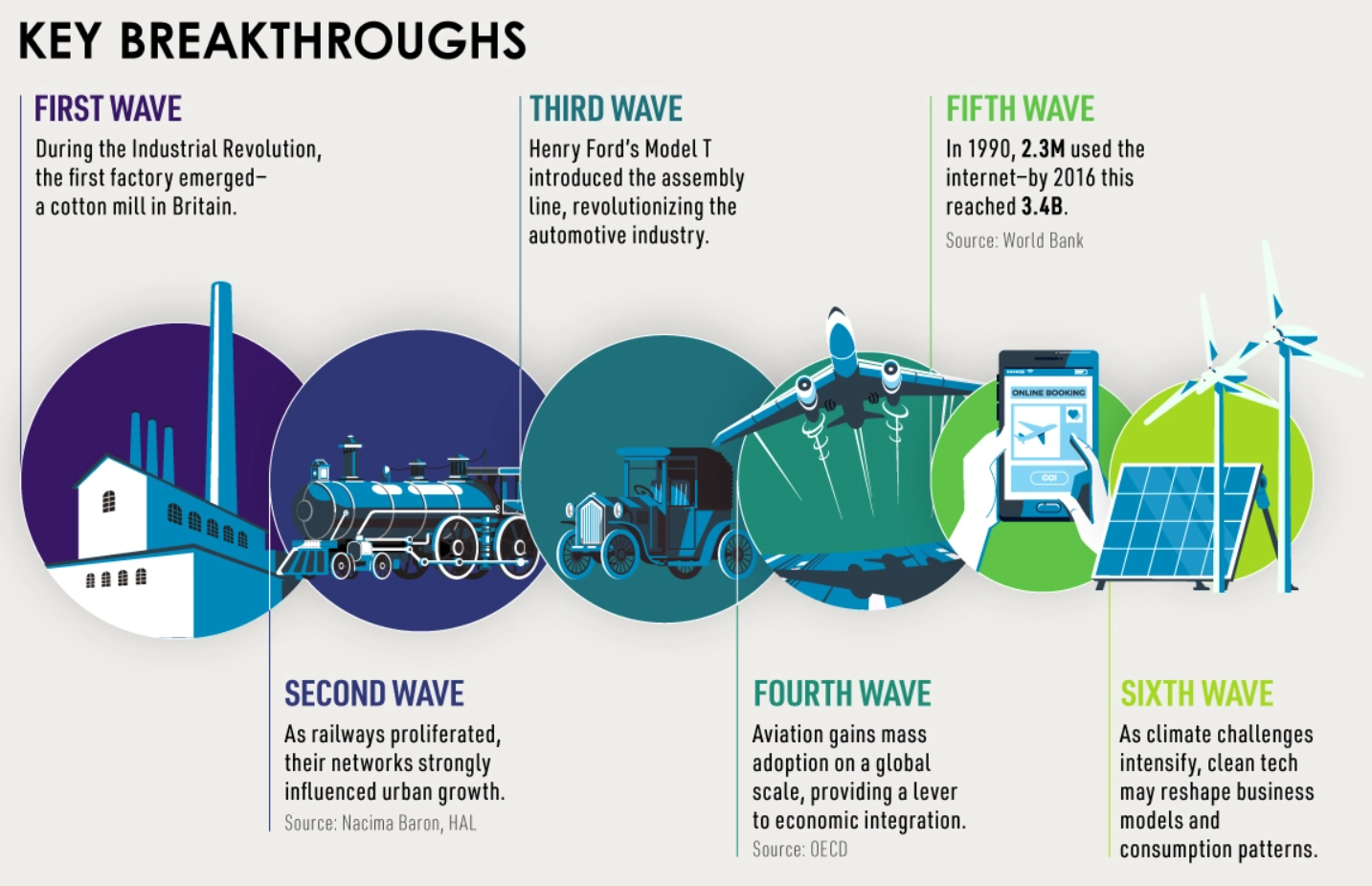
Source: Visual Capitalist
So, does creative destruction give our democracy a key advantage over a dictatorship?
Well, let’s consider this point carefully.
In Singapore, the government doesn’t trust its own people to make decisions for themselves. The country’s system is authoritarian in nature. It’s a one-party state that uses central planning to mould and shape the character of Singaporean society. And freedom is squashed in the name of social cohesion.
By comparison, here in New Zealand, we have a lot more liberty to shape our own life choices. We can be rebellious. We can be creative. We can be resourceful. And by pursuing our own autonomy, we may eventually develop better ideas and better solutions.
Yes, it’s messy. Yes, it’s unpredictable. But, then again, freedom always is.
We must realise that our journey forward won’t be a straight line. Sometimes we zig. Sometimes we zag. Sometimes we stumble. Sometimes we rise.
But I have faith that the final result will be worth it in the end.

Source: Athletics New Zealand
If you need proof of this, you should consider this interesting fact: New Zealand has won 143 medals at the Olympic Games. Per capita, New Zealand is the 10th best-performing sporting nation in the world.
Meanwhile, Singapore has only won 18 medals at the Olympic Games. Per capita, it’s one of the worst-performing sporting nations in the world.
Over the years, the Singaporean government have tried to indoctrinate a love of sport in its people — but so far, their attempts have failed to yield the desired results.
Perhaps there’s a very good reason for this.
Singapore has spent so much time putting its people in a box that they can no longer be persuaded to venture out. In fact, they cannot conceive of a life beyond the box.
It’s become a common joke that Singaporeans are obsessed with chasing after the ‘Five Cs’ — cash, car, credit card, condominium, and country club membership. Everyone is kiasu. They are scared to lose. And because of it, they are risk-averse.
Ironically, Singapore today has become a victim of its own success.
No one wants to step out.
No one wants to do the hard yards — especially in something as unpredictable as sport.
Why should they?
It all just goes to share that creativity cannot be micromanaged. Nor can passion be socially engineered. This kind of motivation doesn’t come from without. It has to come from within.
Indeed, the human spirit needs the spark of freedom to flourish. Messy, dynamic freedom.
We should never forget this.
It’s time for you to have your say
I hope that you’ve enjoyed reading our articles as much as we’ve enjoyed writing them.
Your prosperity is our focus — which is why we are always working hard to uncover new opportunities beyond the radar for you.
By the way, I have a small favour to ask:
- Would you like to write a review of our work here at Wealth Morning?
- Do you want to let us know if our stories have inspired you in a positive way?
- Do you want to let us know if our stories have helped you become a more successful investor?
We truly value your feedback.
It encourages us. It helps us to do better. It helps us to reach further.
So, if you’d like to leave us a review, it’s quick and easy. It will only take two minutes of your time.
❤️ Please click here to review us now on Trustpilot.
Thank you so much in advance for your kindness and generosity.
Your readership keeps us going!
Regards,
John Ling
Analyst, Wealth Morning
(This article is general in nature and should not be construed as any financial or investment advice.)





John is the Chief Investment Officer at Wealth Morning. His responsibilities include trading, client service, and compliance. He is an experienced investor and portfolio manager, trading both on his own account and assisting with high net-worth clients. In addition to contributing financial and geopolitical articles to this site, John is a bestselling author in his own right. His international thrillers have appeared on the USA Today and Amazon bestseller lists.